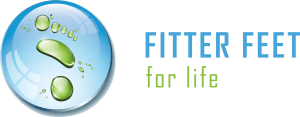Children's Shoes
The College of Podiatry in the UK say that over 4 million children wear ill-fitting footwear.
Children’s foot health is an integral part of their overall health and well-being. It is our job as parents to care for our children’s feet from their first steps and to imbue them with good foot care habits.
By following the foot care advice here, you will give them the start they deserve towards foot and ankle health throughout their lives..
Babies' and toddlers’ feet
When your child first starts to walk, usually between 9 – 18 months of age, is when you should purchase their first pair of proper shoes. Find a trained fitter to make sure they are wearing well-fitting footwear. Shoes for toddlers should have the following:
- Adequate space for movement and growth
- Close-cropped soles to avoid tipping of feet
- Soft Uppers
- Light, flexible soles to assist their walking development
- Adjustable fastenings
- Padded ankle support for optimum protection
If your child hasn’t started walking after 18 months, or if there are early signs of in-toeing (pigeon feet) and/or out-toeing, then you should seek professional help from a podiatrist. These conditions usually resolve themselves over time, without treatment, but it is good to get a professional opinion
School Kids' feet
When your child starts to attend school, it is important to inspect their feet regularly and to check for unusual wear within and under their shoes, particularly the inside or outside of the heel. Uneven or unusual wear in the shoes usually means there is a problem with your child’s posture. An inspection by a podiatrist will whether this is caused by issues with your child’s foot or ankle, or perhaps his or her back or hips.
School children’s feet grow rapidly, along with the rest of their bodies. Always check that their shoes and socks are not too tight-fitting. Signs of ill-fitting footwear are redness around the tips of the toes, below the ankle and at the back of the heel.
When purchasing new footwear for a school child, parents should look out for the following:
- Accurate length and width
- The base of the show should be as wide as the heel
- A flat based shoe heel, no higher than an inch
- Genuine leather shoes
- Take the stairs
- Enough space in front of the toes
Make sure to have a proper shoe fitter help with the purchase of your child’s footwear.
If your child complains regularly about foot pain, seek advice from a podiatrist, as this could be a sign of a problem that requires treatment.
Teenage feet
At this age, your child may be susceptible to ingrown toenails. If neglected, ingrown can result in infection. Promote foot health to your teen by purchasing them a pair of nail clippers and teach them to follow the contours of the nail when trimming.
Again, ensure that your child has good quality shoes. Don’t be pennywise but pound foolish. By purchasing a pair of good quality shoes for your teenage child, you’ll be saving in the long run, as well as helping them maintain optimum foot health.
How we can help
It is never a normal thing for children to feel pain in their feet or legs. ‘Growing pains’ in the feet is not an ordinary aspect of development and should never be overlooked. They are often the direct result of poor foot structure such as flat feet, or poor joint alignment, and can and should be treated.
At Fitter Feet For Life, we offer Gait Analysis for children which allows us to see foot, ankle, knee, hip and back alignment in slow motion. This assists us in assessing abnormal posture, and so determine how best to rectify it.
Fitter Feet For Life provides advice on selection of footwear, and, if necessary, prescribes foot orthoses (orthotics) for children. Children’s foot health is one of our primary concerns and because of this, we offer a free foot inspection for them – all you have to do is book online.



